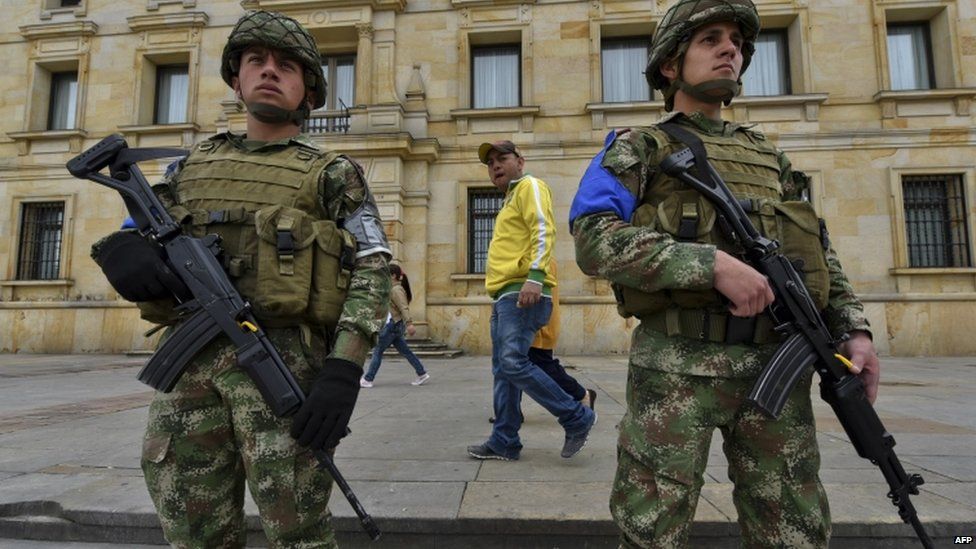Colombia's Farc urges prisoners' release on health grounds
- Published

Colombia's Farc rebel group has urged the government to release 81 of its jailed fighters on health grounds.
The Farc said in a statement that the lives of sick prisoners were at risk because medical attention was poor.
The left-wing rebel group has been engaged in peace talks with the government for the past three years.
The talks have progressed well and both sides are expecting to sign a peace agreement by 23 March 2016 to put an end to decades of conflict.
The health situation of 11 of the 81 prisoners listed is particularly serious, according to the Farc.
The left-wing rebel group says that prisoners in grave condition are not receiving adequate care in prison.
"We expect a gesture of humanity, goodwill and hope for the sick prisoners and their families," reads the statement.
'Bilateral ceasefire'
The Farc said it had taken a number of measures over the past three years to try to scale down the conflict with the Colombian security forces.
Last week, Farc leader Rodrigo Londono Echeverri, known as Timochenko, said he had given orders in September for the Farc to stop buying guns and ammunition.
The rebels previously declared a unilateral ceasefire and urged the government to follow its move.
Mr Santos announced last month he was willing to join the Farc in a bilateral ceasefire from 1 January 2016, if there was significant progress in the negotiations.
Peace talks were launched in the Cuban capital, Havana, in November 2012.
The aim is for the rebels to give up their armed struggle and join the legal political process.
Some 220,000 people are estimated to have been killed since the Revolutionary Armed Forces of Colombia launched its armed struggle in 1964.
- Published11 November 2015
- Published18 October 2015
- Published13 October 2015
- Published24 September 2015